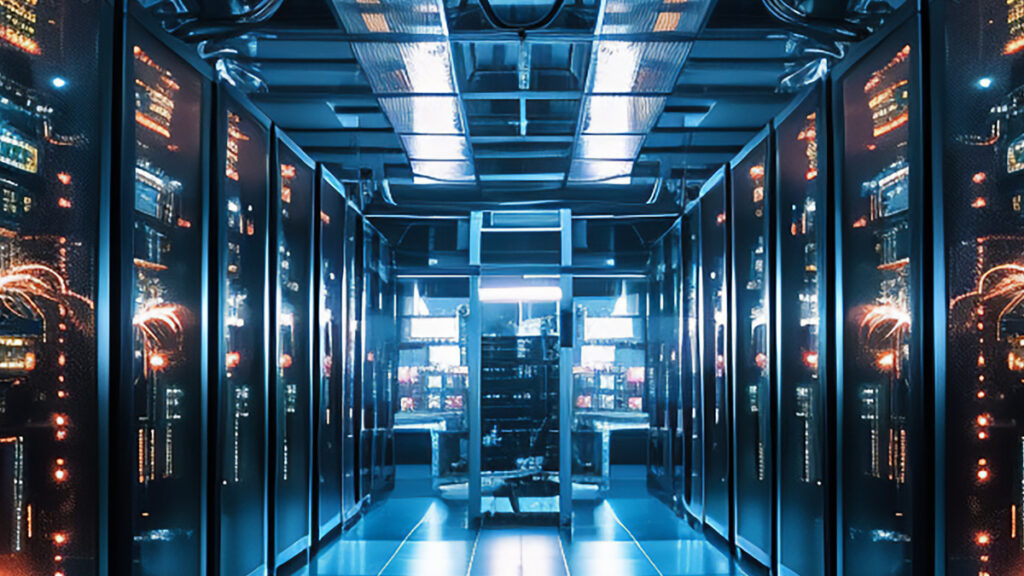Table of Contents
Hitachi and OpenAI will collaborate across multiple areas to reduce the environmental footprint of data centers and speed up AI technology deployment
In sum – what to know:
Strategic alliance targets global AI infra – Hitachi and OpenAI signed an MoU to jointly expand sustainable, next-generation AI data centers worldwide.
Efficiency and reliability – The partnership will develop zero-emission models, modular designs, and advanced cooling and storage solutions.
AI integration deepens in Hitachi systems – Hitachi will embed OpenAI’s LLMs into Lumada and HMAX platforms to enhance industrial AI capabilities.
Japanese industrial conglomerate Hitachi and U.S. AI company OpenAI have signed a Memorandum of Understanding (MoU) to form a strategic partnership focused on developing next-generation AI infrastructure and scaling sustainable data center operations worldwide.
The main aim of the agreement is bring together Hitachi’s industrial and energy expertise with OpenAI’s experience in artificial intelligence to advance a global AI ecosystem.
Under the terms of the MoU, both companies will collaborate across multiple areas to reduce the environmental footprint of data centers and speed up AI technology deployment.
Hitachi and OpenAI will co-develop solutions to minimize strain on power grids, advance zero-emission data center concepts, secure critical long-lead-time equipment, and promote standardization of modular and prefabricated designs to shorten construction times.
The pair will also explore collaboration in the design and provision of key equipment — including advanced cooling and storage systems — to enable rapid AI data center deployment.
Hitachi also noted it plans to further embed OpenAI’s large language models (LLMs) into its Lumada digital platform and HMAX solutions, expanding the capabilities of its enterprise and industrial offerings.
In the U.S., Hitachi Group had committed over $1 billion toward increasing transformer and high-voltage equipment capacity to meet AI-driven data center demand. The company is also scaling its HMAX solutions globally to integrate AI into mission-critical industrial systems.
Toshiaki Tokunaga, president and chairman of Hitachi, said: “While AI is driving rapid innovation, it also brings challenges such as power shortages. Through this strategic partnership, we aim to deliver the full capabilities of One Hitachi to support OpenAI’s technologies, working together toward the realization of a harmonized society.”
Tadao Nagasaki, president at OpenAI Japan, added: “Our strategic partnership with Hitachi is an important step toward that vision. By combining the strengths of both organizations, we will co-create innovative solutions that address global challenges.”
Hitachi is also leaning into the new wave of “physical AI” with a distributed “AI factory”, localized in major regional markets and populated with Nvidia AI chips, to bring private cloud infrastructure and domain-specific AI, combining enterprise-geared small and large language models (SLMs and LLMs), to railways, energy grids, factories, and other industrial infrastructure.
The setup (‘Hitachi AI Factory’) is distributed across the US, Japan, and the broad EMEA region– to ensure Hitachi’s engineers can collaborate seamlessly and access powerful computing resources with low latency, no matter where they are. “This interconnected network will support the creation of a wide range of physical AI applications, driving new levels of efficiency, productivity, and safety across industries,” the company had said.
Hitachi had also agreed a deal to buy Germany-based industrial AI consultancy Synvert to accelerate the deployment of the HMAX suite of agentic and physical AI solutions. Synvert claimed around 200 clients, notably in Germany, Switzerland, Spain, Portugal, and the Middle East.



